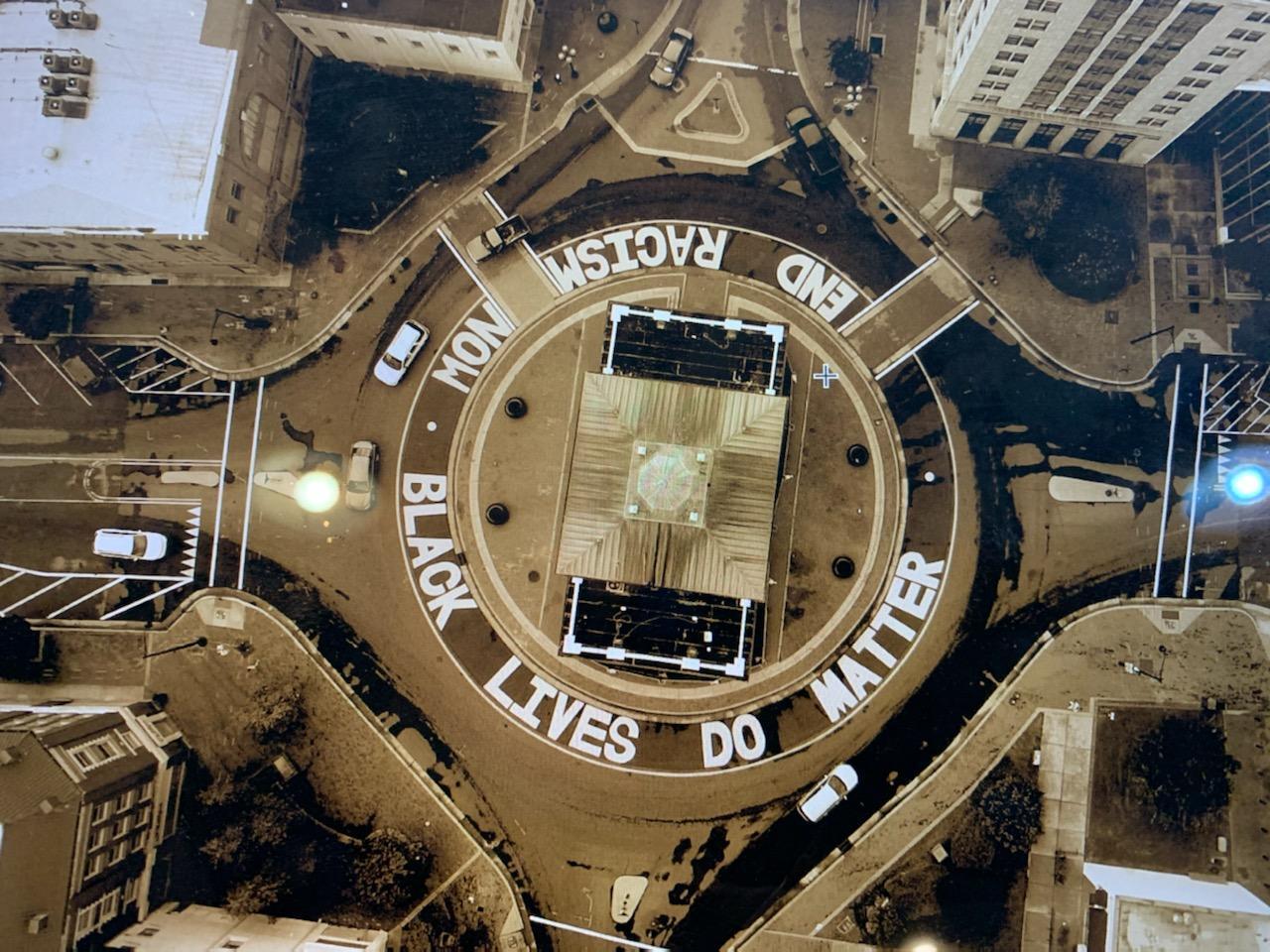In a city where the mayor, the city manager, the city attorney, the police chief, most of the City Council and 40% of the population are Black, we debated the nuances of a phrase. If ever there was a time to affirm, without debate, that “Black Lives Matter” then this was it.
The slave ship that landed in Virginia 400 years ago carried with it our country’s original sin. One-hundred-sixty-seven years later, by counting slaves as three-fifths of a person, we enshrined it in our Constitution. It is part of our cultural DNA.
Despite progress, we remain captives of that legacy as a country and a community. Look no further than City Council’s hand-wringing over the “Black Lives Matter” slogan for proof. In a city where the mayor, the city manager, the city attorney, the police chief, most of the City Council and 40% of the population are Black, we debated the nuances of a phrase. It was a profoundly revealing moment.
When viewed through the lens of our troubled history it laid bare fundamental questions: How, in a majority white culture, can we bend the arc of the moral universe toward justice without these shameful equivocations? If we can’t do it now, then when?
Perhaps, after a 400-year habit of rationalizing oppression, objectification and marginalization, this tedious political indulgence should come as no surprise; but against the backdrop of heart-wrenching tragedies writ large across this country — it does.
The mere fact that there was energy left for shallow debates is a diagnostic sign of our cultural illness. If ever there was a time to affirm, without debate, that “Black Lives Matter” then this was it. Anything less was an abdication of our moral obligation to honor the memory of these most recent victims and their countless forebears. Anything less betrayed a lack of moral clarity and proved, once again, that politics can pollute moral certitude — manipulating it into small-minded, spiritually empty perversions of simple truth. Anything less was a sign to all people of color, and allies like me, that righteousness can be sacrificed on the altar of politics, cheapening us all.
At a time when our history demanded unblinking commitment and moral clarity, the City Council blinked.
Power of dissent
Four hundred years is an inconceivably long time to wait for these trivial debates to stop. Failure to grasp the symbolic significance of these moments gives credence to the fear that too little has changed. It brings outraged citizens to City Hall convinced that in times like this they must be, above all things, visible, vocal and vigorous.
Thankfully, this tradition, the tradition of dissent, is also in our DNA. This astonishing 244-year experiment in democracy was conceived by passionate advocates who vigorously pursued redress of grievances and freedom from oppression without apology. The governing class called them “agitators” and “unruly mobs.”
Sound familiar? This country was tempered in the furnace of their righteous dissent, proving that democracy is dangerous sometimes, sloppy often, and imperfect always. It reminds us that simple, unblinking, uncompromised truth can provide the path to our redemption, and that we emerge from the cauldrons of dissent a more just union.
It gives me hope. Perhaps, in a community that is 50% white, City Council felt there was no other option but to appease factions clinging to vestiges of the past. But this white man is writing to say we must do better, we must BE better, we must not blink, we must not hesitate, and we must not mistake these moments for something other than what they are — opportunities to redeem ourselves.
J. Wayne Riggins is a physician practicing in Fayetteville, a retired Army colonel and a member of The Fayetteville Observer Community Advisory Board.
Jul 18, 2020 at 9:00 AM

